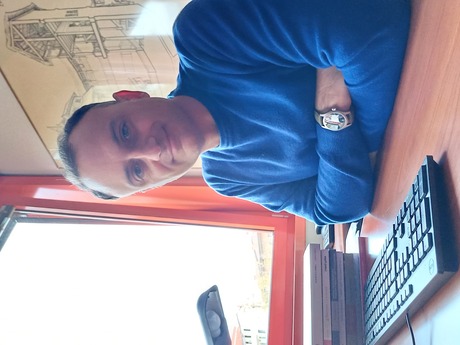Studying at the University of Verona
Here you can find information on the organisational aspects of the Programme, lecture timetables, learning activities and useful contact details for your time at the University, from enrolment to graduation.
Academic calendar
The academic calendar shows the deadlines and scheduled events that are relevant to students, teaching and technical-administrative staff of the University. Public holidays and University closures are also indicated. The academic year normally begins on 1 October each year and ends on 30 September of the following year.
Course calendar
The Academic Calendar sets out the degree programme lecture and exam timetables, as well as the relevant university closure dates..
| Period | From | To |
|---|---|---|
| I semestre (Lingue e letterature straniere) | Sep 25, 2023 | Dec 22, 2023 |
| II semestre (Lingue e letterature straniere) | Feb 19, 2024 | May 25, 2024 |
| Session | From | To |
|---|---|---|
| ESAMI LINGUE - sessione invernale | Jan 8, 2024 | Feb 10, 2024 |
| ESAMI LINGUE - sessione estiva | May 27, 2024 | Jul 20, 2024 |
| ESAMI LINGUE - sessione autunnale | Aug 26, 2024 | Sep 21, 2024 |
| Session | From | To |
|---|---|---|
| LAUREE LINGUE - sessione autunnale (a.a. 2022-2023) | Nov 6, 2023 | Nov 11, 2023 |
| LAUREE LINGUE - sessione straordinaria (a.a. 2022-2023) | Apr 2, 2024 | Apr 8, 2024 |
| LAUREE LINGUE - sessione estiva (a.a. 2023-2024) | Jul 8, 2024 | Jul 13, 2024 |
| Period | From | To |
|---|---|---|
| Festa di Ognissanti | Nov 1, 2023 | Nov 1, 2023 |
| Festa dell'Immacolata | Dec 8, 2023 | Dec 8, 2023 |
| LINGUE - Vacanze di Natale | Dec 23, 2023 | Jan 7, 2024 |
| Vacanze di Pasqua | Mar 30, 2024 | Apr 1, 2024 |
| Festa della Liberazione | Apr 25, 2024 | Apr 25, 2024 |
| Festa del Lavoro | May 1, 2024 | May 1, 2024 |
| Festa del Santo Patrono | May 21, 2024 | May 21, 2024 |
| Festa della Repubblica | Jun 2, 2024 | Jun 2, 2024 |
| Vacanze estive | Aug 12, 2024 | Aug 17, 2024 |
Exam calendar
Exam dates and rounds are managed by the relevant Foreign Languages and Literatures Teaching and Student Services Unit.
To view all the exam sessions available, please use the Exam dashboard on ESSE3.
If you forgot your login details or have problems logging in, please contact the relevant IT HelpDesk, or check the login details recovery web page.
Should you have any doubts or questions, please check the Enrollment FAQs
Academic staff
 beatrice.melodiafesta@univr.it
beatrice.melodiafesta@univr.it
 sara.paolini@univr.it
sara.paolini@univr.it
Study Plan
The Study Plan includes all modules, teaching and learning activities that each student will need to undertake during their time at the University.
Please select your Study Plan based on your enrollment year.
1° Year
| Modules | Credits | TAF | SSD |
|---|
1st foreign language2nd foreign language1st foreign literature2nd foreign literature1 module between the following2° Year It will be activated in the A.Y. 2024/2025
| Modules | Credits | TAF | SSD |
|---|
1st foreign language2nd foreign language1st foreign literature2nd foreign literature3° Year It will be activated in the A.Y. 2025/2026
| Modules | Credits | TAF | SSD |
|---|
1st foreign language2nd foreign language1st foreign literature2nd foreign literature1 module among the following (philology must related to 1st or 2nd foreign language)1 module between the following| Modules | Credits | TAF | SSD |
|---|
1st foreign language2nd foreign language1st foreign literature2nd foreign literature1 module between the following| Modules | Credits | TAF | SSD |
|---|
1st foreign language2nd foreign language1st foreign literature2nd foreign literature| Modules | Credits | TAF | SSD |
|---|
1st foreign language2nd foreign language1st foreign literature2nd foreign literature1 module among the following (philology must related to 1st or 2nd foreign language)1 module between the following| Modules | Credits | TAF | SSD |
|---|
Legend | Type of training activity (TTA)
TAF (Type of Educational Activity) All courses and activities are classified into different types of educational activities, indicated by a letter.
Spanish Language 1 (2023/2024)
Teaching code
4S02553
Teacher
Coordinator
Credits
9
Language
Italian
Scientific Disciplinary Sector (SSD)
L-LIN/07 - LANGUAGE AND TRANSLATION - SPANISH
Period
I semestre (Lingue e letterature straniere) dal Sep 25, 2023 al Dec 22, 2023.
Courses Single
Authorized
Learning objectives
On completion of this course, students: – will know the geographical and demolinguistic status of Spanish and the essential aspects of the spread of this language in the world and in society; – will know the main grammatical and lexicographical works of the Spanish language and their fundamental characteristics; – will know the essential aspects of the phoneme / grapheme relationship, of the vocabulary and of the morphosyntactic structures of Spanish and will be able to apply them in the analysis of texts. Furthermore, B1 language level of competence in Spanish (according to the Common European Framework of Reference for Languages) is also required.
Prerequisites and basic notions
It is compulsory to acquire at least level B1 (complete) linguistic competence before the exam, corresponding to 3 of the 9 teaching credits. Verification of linguistic competence is based on the certifications issued by the CLA (University Language Center) or by recognized certification bodies, such as the Instituto Cervantes (subject to the equivalence of the CLA included in the appropriate lists). As indicated in the Regulatory Vademecum for students of the Foreign Languages and Literature Area, the validity of the B1 language certification is three years from the date of achievement.
Program
The course aims to: a) offer an overview of the spread of the Spanish language and related problems b) provide the basic tools for the analysis of the main functioning mechanisms of current Spanish, according to a contrastive approach (Italian/Spanish ). Main topics of the program: 1. The Spanish language in history, in society and in works of a linguistic nature 1.1. Geography of the Spanish language and demolinguistics 1.2. Linguistic tools (an introduction to dictionaries and grammars) 2. Constituent elements of the Spanish language: from minimal units to morphosyntax The program is the same even for non-attending students, who will be able to make use of recommended readings, indicated in the e-learning platform, to fill any gaps regarding the topics covered during the lessons.
Bibliography
Didactic methods
Classroom lessons on the topics of the program. During the lessons, teaching materials will be used which will form an integral part of the exam programme. They will be made available on the teaching Moodle platform. Teaching support methods: The supplementary and support teaching materials will be uploaded to the teaching Moodle platform. Furthermore, a specific tutoring service will be activated for the teaching of Spanish Language 1, the methods of which will be illustrated in lessons and in the teaching Moodle platform. Furthermore, the teacher remains available during her office hours. Finally, we would like to point out to potential interested parties that a specific support and tutoring activity is available for inclusion and accessibility, in particular in relation to Language and Literature teachings in the French, English, Russian, Spanish and German areas. The activities will be advertised on the Department page.
Learning assessment procedures
Written test. The written test, lasting 60 minutes, consists of multiple choice, short answer and open answer questions. Some questions will require metalinguistic reflection and the ability to identify phenomena dealt with during the course and to propose examples of them. The exam will focus on the program carried out during the lessons, on the teaching materials and on the bibliography of the course. The exam questions will be formulated in Spanish, but as this is the 1st year exam, students will be able to answer the open questions in Italian. The use of the dictionary or other support tools will not be allowed.
The examination methods are the same even for non-attending students.
Erasmus students should contact the teacher at the beginning of the lessons. A list of additional readings for the possible integration of 3 CFU will be published on the e-learning platform.
It will be possible to take the exam with the program and methods indicated until the extraordinary session of January/February 2025.
Evaluation criteria
The exam is aimed at ascertaining the breadth and depth of knowledge gained on the topics in the program, as well as the language properties, terminological precision and the ability to connect the acquired knowledge in a systemic form.
Criteria for the composition of the final grade
The final mark out of thirty will be obtained from the average between that of the written test (if equal to or greater than 18/30) and that of linguistic competence (converted into thirty based on the indications in the "Regulatory Vademecum for students of the Language Area and Foreign Literature "). The results will be communicated through ESSE3.
Exam language
Italiano/spagnolo
Type D and Type F activities
Soft skills
Find out more about the Soft Skills courses for Univr students provided by the University's Teaching and Learning Centre: https://talc.univr.it/it/competenze-trasversali
Contamination Lab
The Contamination Lab Verona (CLab Verona) is an experiential course with modules on innovation and enterprise culture that offers the opportunity to work in teams with students from all areas to solve challenges set by companies and organisations. Upon completion of a CLab, students will be entitled to receive 6 CFU D (type credit).
Find out more: https://www.univr.it/clabverona
PLEASE NOTE: In order to be admitted to any teaching activities, including those of your choice, you must be enrolled in the academic year in which the activities in question are offered. Students who are about to graduate in the March-April sessions are therefore advised NOT to undertake extracurricular activities in the new academic year in which they are not enrolled, as these graduation sessions are valid for students enrolled in the previous academic year. Therefore, students who undertake an activity in an academic year in which they are not enrolled will not be granted CFU credits.
To discover all the teaching activities accredited by the foreign teaching college click here
Career prospects
Module/Programme news
News for students
There you will find information, resources and services useful during your time at the University (Student’s exam record, your study plan on ESSE3, Distance Learning courses, university email account, office forms, administrative procedures, etc.). You can log into MyUnivr with your GIA login details: only in this way will you be able to receive notification of all the notices from your teachers and your secretariat via email and soon also via the Univr app.
Student login and resources
Gestione carriere
Assegnazione tutore
Attività accreditate D/F
Calendario didattico dettagliato
Cambio lingua curriculare
Competenze informatiche
Competenze linguistiche (prima e seconda lingua)
Competenze linguistiche in triennale (terza lingua CFU F)
Compilazione del piano didattico
Corso di Lingua portoghese
Erasmus+ e altre esperienze all'estero
Linguistic training CLA
Presentazione dei corsi di studio e Open day
Graduation
Saperi minimi
Stage e tirocini
Le attività di stage sono finalizzate a far acquisire allo studente una conoscenza diretta in settori di particolare interesse per l’inserimento nel mondo del lavoro e per l’acquisizione di abilità professionali specifiche.
Le attività di stage sono svolte sotto la diretta responsabilità di un singolo docente presso studi professionali, enti della pubblica amministrazione, aziende accreditate dall’Ateneo veronese.
I crediti maturati in seguito ad attività di stage saranno attribuiti secondo quanto disposto nel dettaglio dal “Regolamento d’Ateneo per il riconoscimento dei crediti maturati negli stage universitari” vigente.
- Tutte le informazioni in merito agli stage per futuri studenti sono disponibili alla pagina Stage e tirocini.
- Tutte le informazioni in merito agli stage per studenti iscritti sono pubblicate in MyUnivr - come fare per - stage e tirocini.
- Tutte le informazioni in merito agli stage per le aziende sono disponili alla pagina Stage e tirocini per azienze.
Ulteriori informazioni al seguente link https://www.univr.it/it/i-nostri-servizi/gestione-carriere-studenti-lingue-e-letterature-straniere/stage-e-tirocini-lingue-e-letterature-straniere

 +39 045802 8409
+39 045802 8409
















































